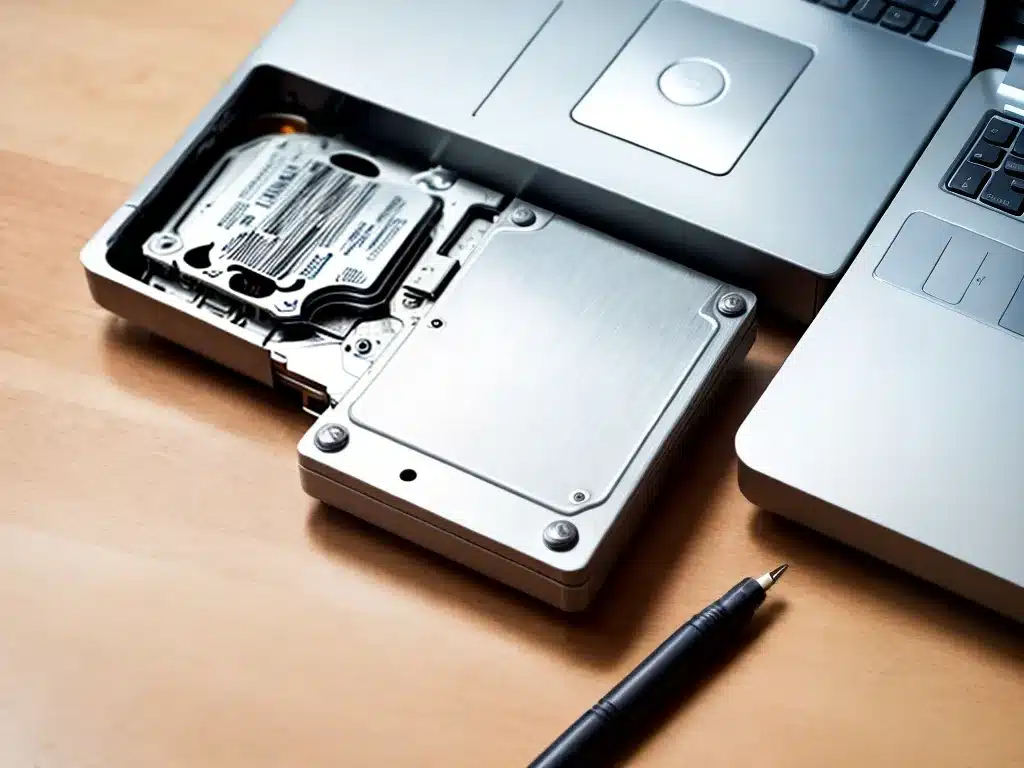
Introduction
When you delete a file on your computer, it may seem like it’s gone forever. However, that is often not the case. Deleted files can remain on your hard drive for a considerable amount of time, even if you can’t see them anymore.
In this article, I will explain how file deletion works, what happens to erased files, and how long they can stay on your hard drive before being truly deleted. I’ll also provide tips on how to more permanently delete sensitive files you want to make sure can’t be recovered.
How File Deletion Works
When you delete a file on your computer, either by hitting delete, dragging it to the recycle bin, or using a “secure delete” utility, it doesn’t actually get immediately erased from your hard drive. Instead, the reference to that file’s data on the hard drive is removed from your operating system’s index.
The File Isn’t Immediately Overwritten
The data that makes up the file itself is left unchanged on the hard drive. This makes it faster than actually overwriting the data, which can take time with large files. It also allows you to easily recover accidentally deleted files, as long as the space they occupied hasn’t been overwritten.
The Space is Marked as Available
In addition to removing the file reference, the deletion process marks the space the file occupied as being available for new data. At this point, the deleted file is invisible to the operating system, but can remain fully intact on the hard drive.
The File Can Be Overwritten
With the space now considered available, the operating system may write new files to that area of the hard drive. When this happens, the original deleted file is partially or fully overwritten, making recovery difficult or impossible. However, until the space is needed, the deleted file stays put.
What Happens to Erased Files
When you delete a file normally, several things can happen:
-
The file stays intact until the space is overwritten by new data. This can be anywhere from days to years.
-
The file is partially overwritten but recoverable using file recovery software. The more overwritten, the less can be recovered.
-
The file is completely overwritten by new data and unrecoverable, even using recovery tools.
Many factors determine when and if a deleted file gets overwritten, including how full your hard drive is and how actively you use it. On a rarely used drive with ample free space, deleted files can persist for years.
How Long Do Erased Files Stay?
In general, there is no precise timeframe for how long erased files stay on a hard drive before being overwritten. However, here are some guidelines:
-
On a lightly used hard drive with plenty of free space, erased files can stay intact for over a year.
-
On a heavily used system drive like your primary hard disk with less free space, erased files may start being overwritten in as little as a few days or weeks.
-
Solid state drives (SSDs) tend to overwrite data more quickly than traditional hard disk drives. Deleted files may only persist for weeks or months.
-
Unused areas of a drive will retain deleted files longer than frequently accessed areas. For example, erased files on a rarely accessed secondary data drive may stay for many months.
-
Heavy use of the computer will cause deleted files to be overwritten faster than light use. Just browsing the web creates many temporary files that take up the empty space.
Securely Erasing Files
If you want to delete sensitive files more securely, so that they can’t be forensically recovered, you have a few options:
-
Use a secure delete utility that overwrites the file’s space on your drive multiple times to prevent recovery.
-
Use encryption to secure sensitive files, then format the encrypted volume. The key will be required to access those files again.
-
On solid state drives, enable TRIM to notify the SSD which blocks of deleted data are no longer in use and can be immediately overwritten.
-
Completely format and repartition the drive to delete all files and make recovery very difficult. This is overkill for deleting just a few files.
Conclusion
While deleting files may seem permanent, they can stubbornly persist on your hard drive long after you erase them. However, with normal use, most deleted files will be partially or fully overwritten within weeks or months at most, depending on the drive. To more securely erase sensitive data, take advantage of secure deletion software and encryption. With vigilance, you can avoid deleted files coming back to haunt you.












